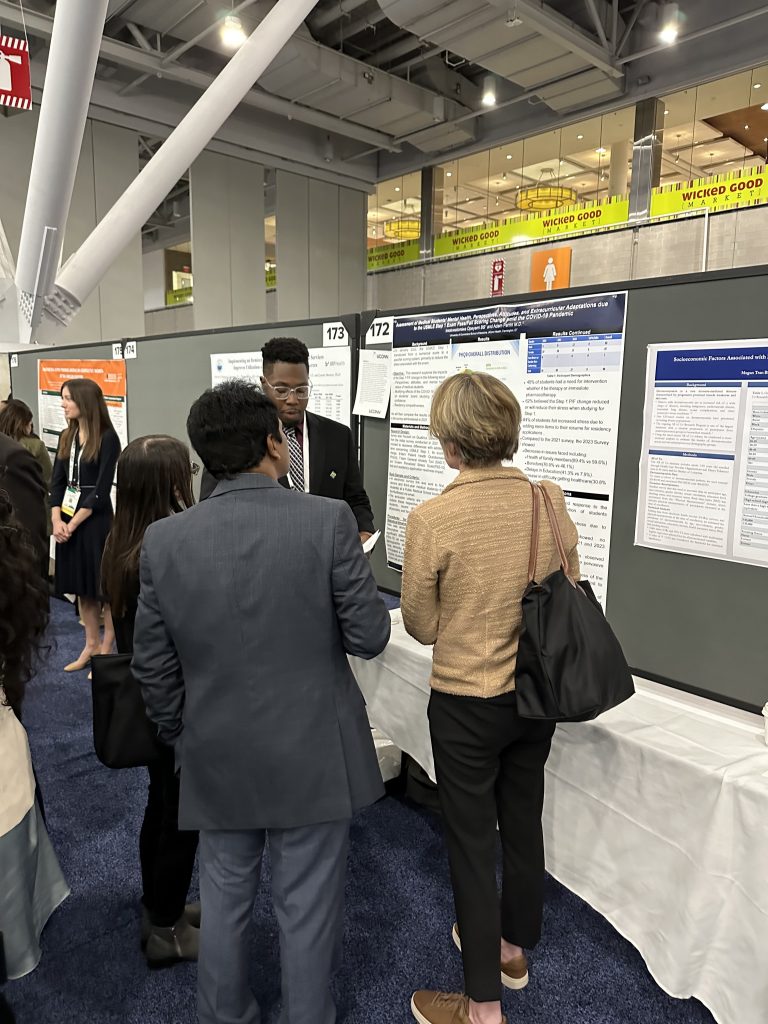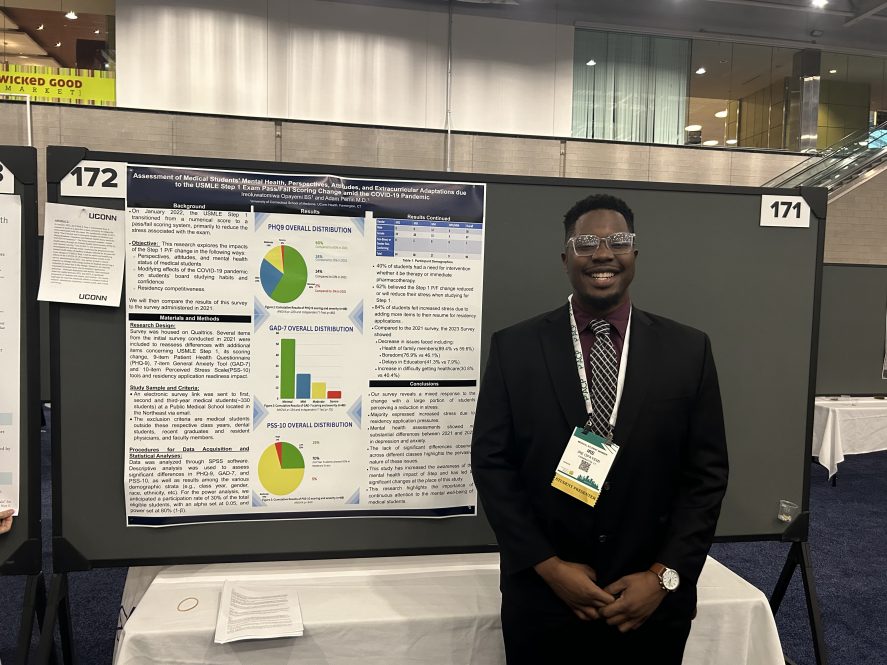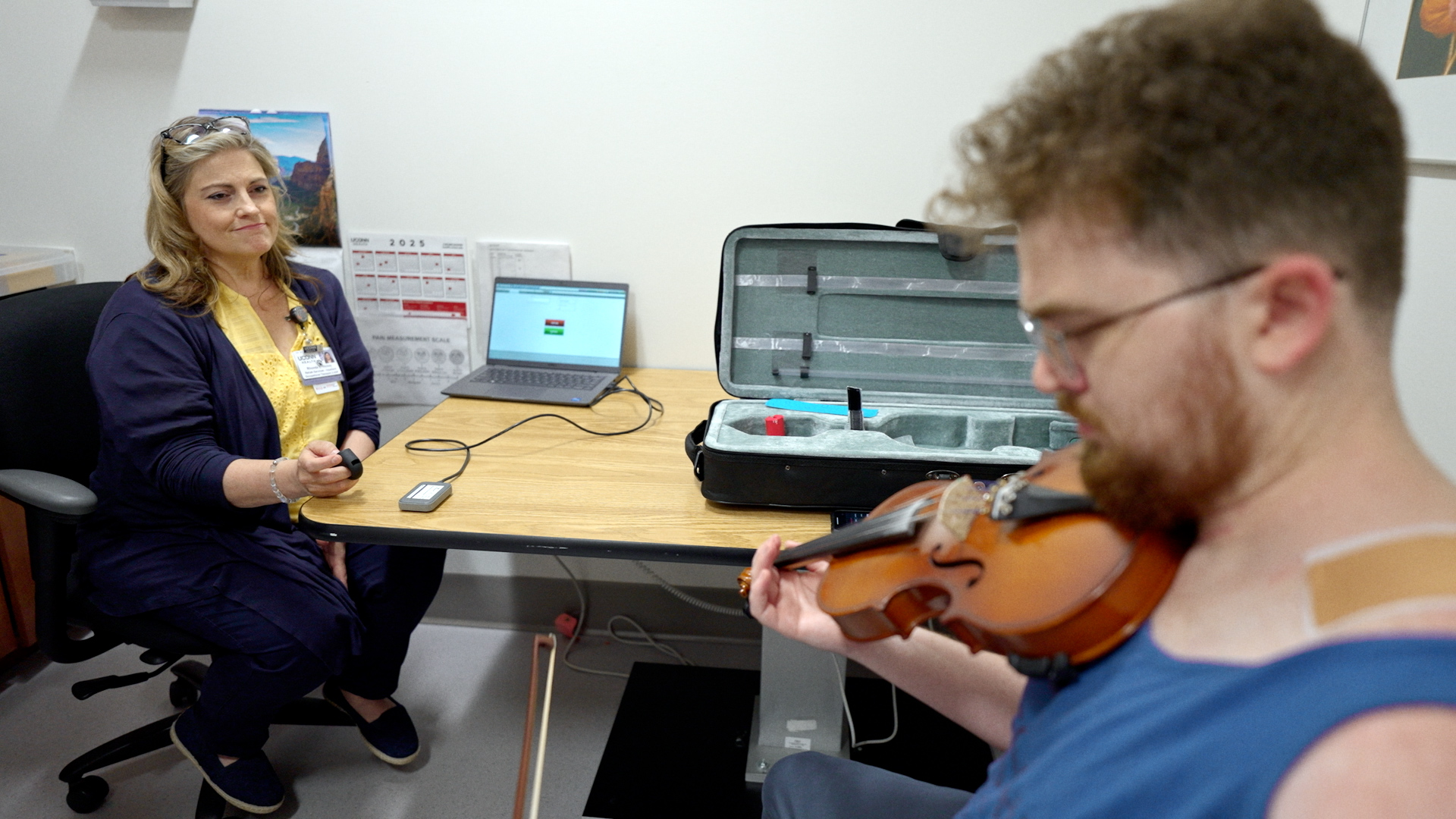Rising fourth-year UConn School of Medicine student Ireoluwatomiwa “Ire” Opayemi was honored by the American College of Physicians at their national Internal Medicine Meeting, held April 18-20 at the Boston Convention and Exhibition Center, for his student-led medical research.

Opayemi’s research poster was on his “Assessment of Medical Students’ Mental Health, Perspectives, Attitudes, and Extracurricular Adaptations due to the USMLE Step 1 Exam Pass/Fail Scoring Change amid the COVID-19 Pandemic” at UConn School of Medicine.
UConn Health Family Medicine physician Dr. Adam Perrin, Faculty Co-Director of Student Affairs and director of Student Wellness at the UConn School of Medicine, served as his faculty mentor and assisted him as principal investigator (PI) for the research project.
In January 2022, the United States Medical Licensing Examination® (USMLE) Step 1 transitioned from a numerical score to a pass/fail scoring system, primarily to reduce the stress associated with the exam. Opayemi’s research explored the impacts of the Step 1 P/F change and compared it to the 2021 survey. It included perspectives, attitudes, and mental health status of medical students; the modifying effects of the COVID-19 pandemic on students’ board studying habits and confidence; and residency competitiveness.
Opayemi’s research study findings revealed a mixed response to the change with a substantial portion of students perceiving a reduction in stress. But the majority expressed increased stress due to residency application pressures. Mental health assessments showed no substantial differences between 2021 and 2023 in depression and anxiety. However, the lack of significant differences observed across different classes highlights the pervasive nature of these issues.
His study findings have already helped his fellow UConn medical students.
“This study has increased the awareness of the mental health impact of Step and has led to significant changes at the place of this study,” reports Opayemi. “This research highlights the importance of continuous attention to the mental well-being of medical students.”

“I am very proud of Ire’s work,” says Perrin. “The subject matter explored in this project is very much reflective of his focus on the mental health of medical students. Ire is very much about advocating for his classmates, as well as his patients, for the betterment of their mental health.”
Interestingly, Opayemi is a founding member of the UConn Health chapter of Medical Minds Matter, a student-run organization “that seeks to transform the narrative of mental health in the medical field through storytelling, community-building, and grassroots advocacy efforts.” The organization is focused on dispelling the stigma surrounding mental health challenges in medical professionals.
Opayemi is currently wrapping up a year of study devoted to earning the degree of Master of Public Health. He will return to his medical school studies this summer and is on course to graduate, and officially become Dr. Opayemi, in May 2025.



